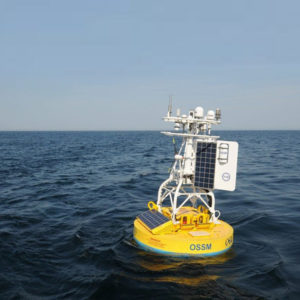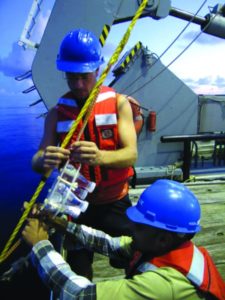As human population is predicted to reach 9 billion by 2050, people are turning with growing urgency to the ocean for answers to the greatest challenges of our age, such as feeding the world’s growing population; providing clean energy to power vibrant economies; increasing resilience to dangers from the sea; and mitigating and adapting to climate change. But people are also looking to the ocean for more – for hope and inspiration. The ocean is the last unexplored frontier on Earth and holds so much promise and opportunity for the future – provided we manage it wisely.
Human activities are having widespread impacts on the ocean such as overfishing and biodiversity loss, the acidification of the ocean as it takes up excess carbon dioxide from fossil fuel burning, or the spread of disintegrating waste plastics throughout the ocean with as yet unknown consequences. This ocean state cannot continue and humanity needs to find ways to manage more effectively our relationship with the ocean, coastal seas and estuaries so future generations can benefit from it as we do.
Therefore, we need to be more continuously aware of how and why the ocean is changing – and maybe better predict the impacts of the ocean on people and of people on the ocean. To this end, making continuous ocean measurements with global coverage is now a pressing priority. We need to do this to manage a safer, more sustainable relationship between people and the ocean – and we cannot manage what we cannot measure!
The ocean is too vast, too interconnected and its impacts too widespread for any one nation let alone one organisation to embark on this task alone. One simple message is clear: international cooperation is essential.
That is why we, the major ocean research institutions of the world have come together to form the Partnership for Observation of the Global Ocean (POGO).
We are not daunted by the task ahead of us – we are excited by it. This is because we believe that collectively we have the capability to succeed, enabled by rapidly advancing technological innovations that we are leading. We believe that working together there is now a real prospect, over the next decade, of making major strides forward in building the truly global ocean measurement system needed to understand and monitor the ocean for the benefit of all.



